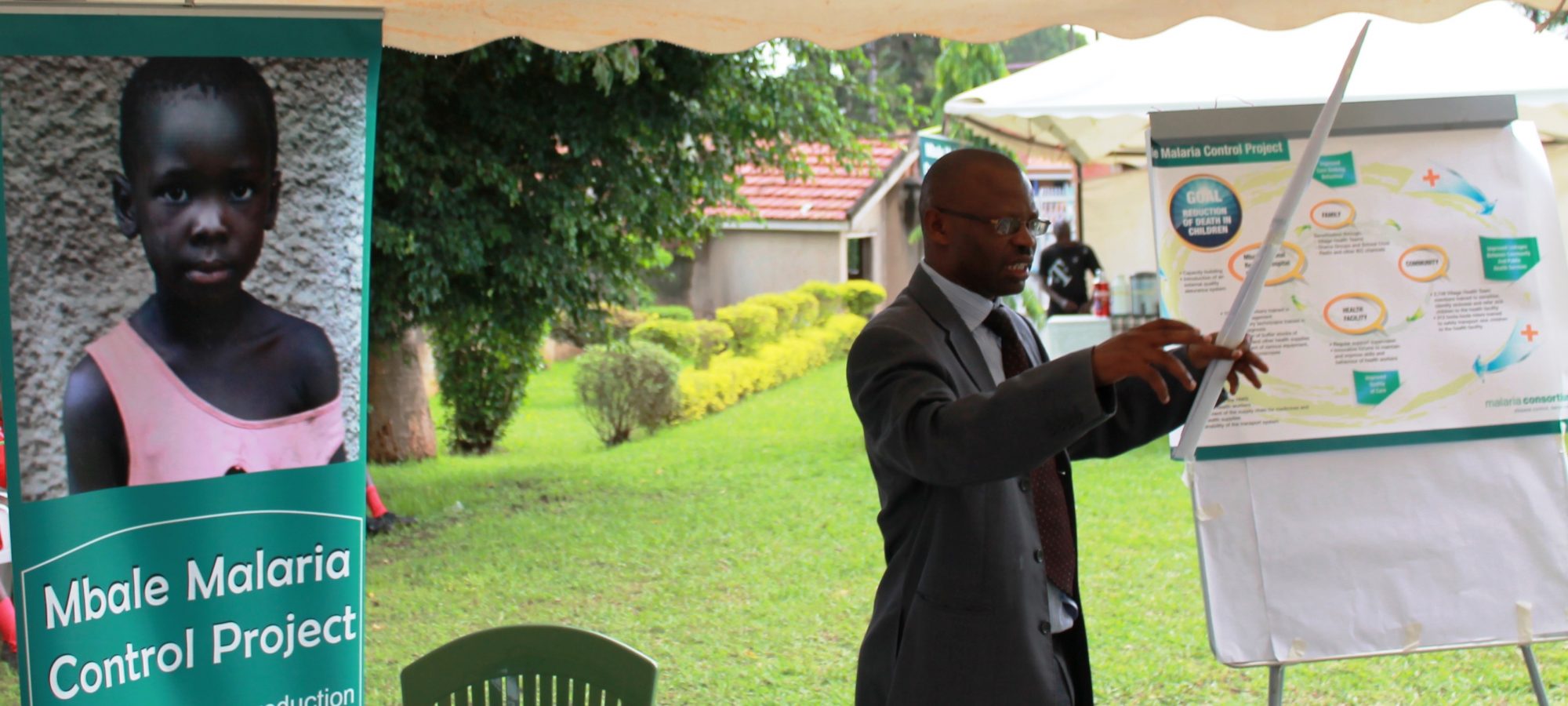Leila Noisette, Malaria Consortium’s Advocacy Officer in Uganda, interviews Dr John Baptist Waniaye, District Health Officer in Mbale, Eastern Uganda, on how support for malaria control in the region, through Malaria Consortium’s Mbale Malaria Control Project – funded by Comic Relief – is benefitting the health system as a whole and how to sustain these benefits.
The Mbale Malaria Control Project started two years ago. What impact have you seen on the delivery of health services and on health more broadly in the district?
The Mbale Malaria Control Project has led to a change in our community. The health seeking behaviour of our people has improved a lot. We recently did a quality assurance survey which indicated that 86.5 percent of people are seeking health services within 24 hours of becoming sick. This has largely been due to the system of village health teams, which aim to help people seek (health) care in time before they get complications.
An addition to that has been the availability of medicines; National medical stores has improved in its quantity and quality of supplies to about 70/80 percent of the needs of the people of Mbale and Malaria Control Project has also been buffering, filling up those gaps. So right now we are talking about availability of essential medicines at 92 percent. Most of the patients who reach our facilities are now able to get the medicines. For those who don’t know, it is very important for us to remind them that the medicines are available and they should be able to use the public health facility if possible.
Another contribution has been the availability of diagnostic equipment. This has improved the way health workers treat the patients, because they feel more confident and are able to diagnose accurately and offer proper medication based on the diagnosis. Because we have received microscopes, wing scales and so on, so we have improved a lot. All these are aimed at diagnosing mainly malaria. But as you know, malaria is an entry point for over 40 percent of health services required in the health sector and this equipment is also used for other common illnesses which cause death in children, so all this is tackled on a more holistic level.
Recently, we also had a citizen satisfaction survey conducted by Strengthening Decentralisation for Sustainability (SDS), a USAID funded project implemented in partnership with the district. Interestingly, it has shown that in the last two to three years, the citizen satisfaction with health services delivery has improved. Three years ago, we were at four percent satisfaction. The recent survey shows that now we are at 64 percent satisfaction with health services delivery. So we think that if we continue with the current trust levels we are going to improve significantly the services to our people.
What do you see as the best way to sustain these results?
In terms of sustainability, the first thing is ownership by the district. We would like to take on this intervention seriously by seeing to it that we plan and budget for some of these activities, like supporting the community referral system, or sustaining the meetings for the village health team members, and how to plan for this at all our levels, district level, sub-county level and village level.
On the side of the community, we also think that in order to sustain this, there should be community contribution at household level. Assessments done by our Community Development Officers indicates that there is some household will to contribute towards sustaining these good achievements. Our job now remains how to sensitise people to take this on, from the district level with the District Council to sub-county and village councils, so that they also go out there and bring people to support sustainability.
The other thing is increasing partnership, networking. We would like to work more closely with partners. We believe that through coordination and networking with other service providers we will be able to sustain the current achievements in the health sector.
What is your personal opinion about this project, as a District Health Officer (DHO), but also as a member of the Mbale community?
I think this is a great project which has touched the real needs of the people and it has satisfied most of our needs. As a DHO I feel very proud to be associated with this project because it has been able to make me fulfil some of my mandates and assignments as a DHO. Then as a citizen from here and a villager from this place, I really feel happy that we can go to a health facility and get diagnosed and receive the drugs largely due to the contribution by this project. I used to receive so many phone calls from my village mate telling me there is no medicine here and there but now I don’t receive these phone calls anymore so I feel there has been a change in the community.
